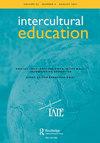冲突城市中的基督门徒与世界主义:以色列雅法一所信仰学校中的少数人主体性
IF 0.8
Q3 EDUCATION & EDUCATIONAL RESEARCH
引用次数: 1
摘要
苏格兰教会的Tabeetha学校位于以色列有争议的城市雅法,是一所以信仰为基础的殖民国际学校,以阿拉伯-巴勒斯坦学生、基督教精神、苏格兰精神和面向全球的课程为特色。通过对苏格兰学校的人种学案例研究,本文揭示了基督教和国际教育作为隔离的以色列公共教育体系的一种选择的价值,这种教育体系已经将针对阿拉伯-巴勒斯坦少数民族的歧视性做法制度化。考虑到敌对的社会政治背景,研究结果揭示了宗教传统、殖民遗产、当地民族议程和多元文化话语的复杂交集如何塑造根植于跨国、世界主义和倡导全球公民模式的学生主体性。对于雅法的阿拉伯-巴勒斯坦人来说,基督教学校的国际教育提供了另一种途径,可以通过积累国际资本和发展务实的全球公民身份来获得教育公平、就业机会和归属感。尽管在犹太国家的范围内排除了阿拉伯-巴勒斯坦身份,但Tabeetha学校创造了空间,使他们能够保存,同时鼓励学生建立新的跨国依恋和忠诚,这在我们日益全球化的世界中提供了优势。本文章由计算机程序翻译,如有差异,请以英文原文为准。
Disciples of Christ and cosmopolitanism in a city of conflict: minority subjectivities in a faith-based school in Jaffa, Israel
ABSTRACT Located in Israel’s contested city of Jaffa, The Church of Scotland’s Tabeetha School is a faith-based, colonial-international school featuring an unlikely combination of Arab-Palestinian pupils, Christian ethos, Scottish spirit, and globally oriented curriculum. Drawing on an ethnographic case study of the Scottish School, this article unpacks the value of a Christian and international education as an alternative to the segregated Israeli public education system, which has institutionalised discriminatory practices against the Arab-Palestinian minority. Considering the hostile sociopolitical context, findings reveal how complex intersections of religious tradition, colonial legacy, local ethnonational agendas, and multicultural discourses shape student subjectivities rooted in transnational, cosmopolitan, and advocacy global citizenship models. For Jaffa’s Arab-Palestinians, international education within a Christian school offers alternative avenues to attain educational equity, employment opportunities, and belonging by accumulating international capital and developing pragmatic global citizenships. Despite the exclusion of Arab-Palestinian identities within the bounds of the Jewish state, Tabeetha School creates space enabling their preservation while encouraging students to forge new transnational attachments and allegiances, which provide advantage in our increasingly globalised world.
求助全文
通过发布文献求助,成功后即可免费获取论文全文。
去求助
来源期刊

Intercultural Education
EDUCATION & EDUCATIONAL RESEARCH-
CiteScore
2.30
自引率
8.30%
发文量
36
期刊介绍:
Intercultural Education is a global forum for the analysis of issues dealing with education in plural societies. It provides educational professionals with the knowledge and information that can assist them in contributing to the critical analysis and the implementation of intercultural education. Topics covered include: terminological issues, education and multicultural society today, intercultural communication, human rights and anti-racist education, pluralism and diversity in a democratic frame work, pluralism in post-communist and in post-colonial countries, migration and indigenous minority issues, refugee issues, language policy issues, curriculum and classroom organisation, and school development.
 求助内容:
求助内容: 应助结果提醒方式:
应助结果提醒方式:


